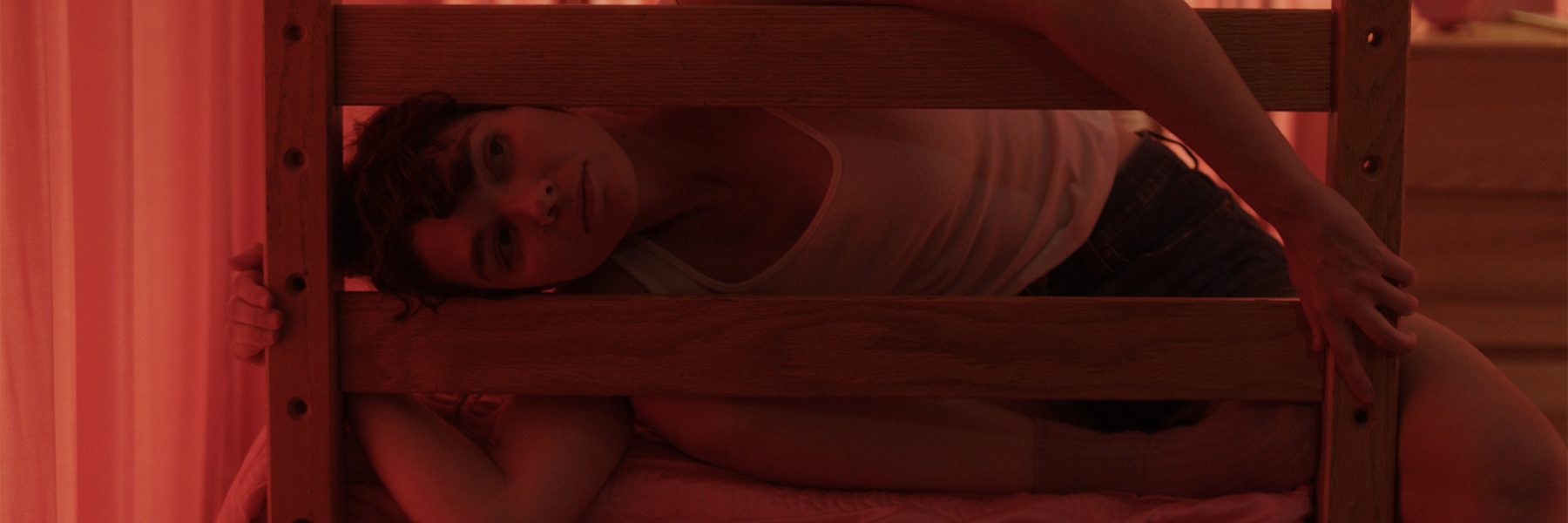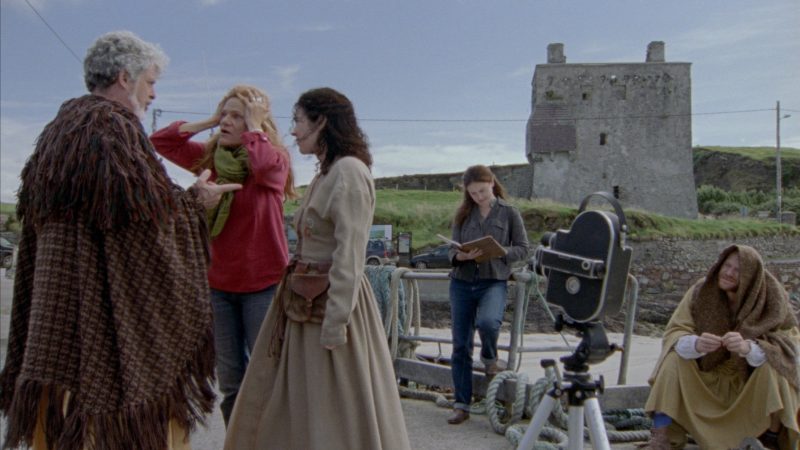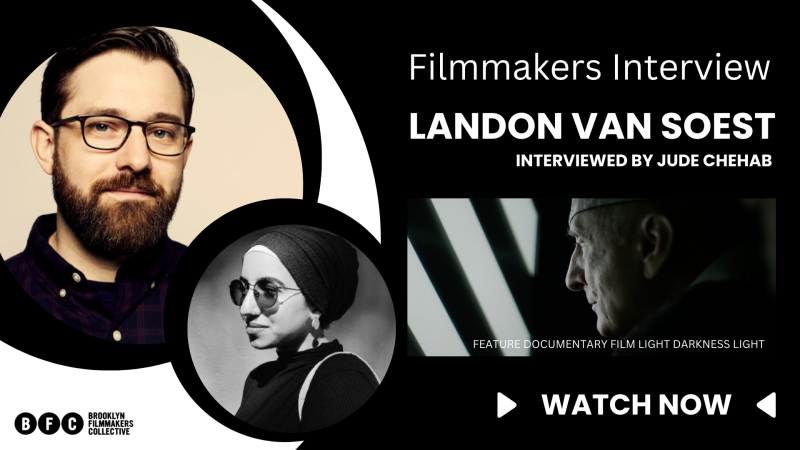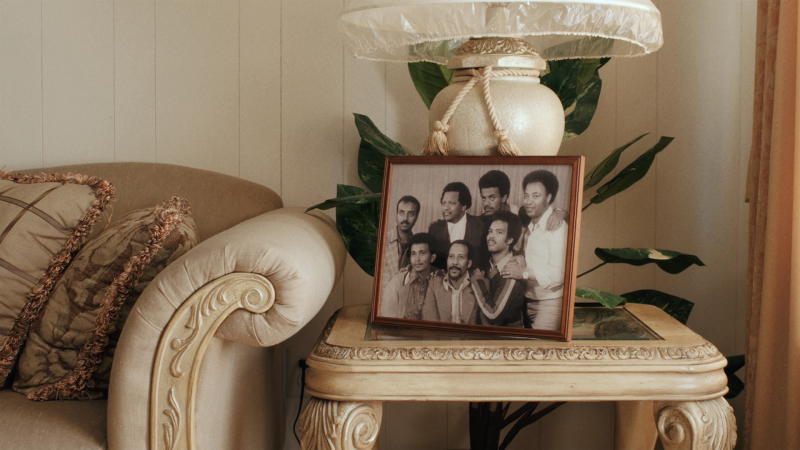Edited by Tian
July 2025
In her work-in-progress documentary Vestibule, filmmaker Riley Hooper (BFC Member) shares a deeply personal and ultimately empowering journey toward sexual health, pleasure, and bodily autonomy. In the film, she traces a decade of living with Vestibulodynia, a chronic vulvovaginal pain disorder, by turning the camera on herself — and, at times, with the help of friends behind the lens. What begins as a search for pain-free sex gradually unfolds into a multigenerational story of resilience, dignity, and self-discovery.
In the fall of 2024, Riley and her producer Bryn Silverman presented Vestibule at the Points North Pitch at the Camden International Film Festival. Their presentation, carrying the same quiet vulnerability and disarming honesty as the film itself, moved the entire room and earned them the top prize.
Among the audience that day was fellow BFC member Danya Abt, a documentary filmmaker and editor, who later sat down with Riley to reflect on the pitch and the almost decade long journey behind the film. Here’s their conversation — watch the video or scroll down for the transcript.
INTERVIEW TRANSCRIPT
Editorial disclaimer: This interview has been edited for clarity, readability, and length. Some portions of the original conversation have been removed.
Danya: Riley, thank you so much for taking time to have a conversation about your ongoing project, Vestibule, an incredible forthcoming documentary. We’ve been lucky enough at BFC to see the project. You’ve workshopped it with us a couple of times over the years. I think the first time I saw it might have been in 2019. I feel like it was the first BFC (workshop) I moderated. It’s this labor of love that is coming together so beautifully.
This past September, I was planning to attend Camden Film Festival in Camden, Maine, and I saw that you were participating in the Points North fellowship, which culminates in a very beloved pitch competition, which a lot of incredible films have been in. And then, lo and behold, your pitch won the competition! The pitches were all actually really strong. So it says a lot about you and your team and the strength of the pitch.
So I wanted to just grab you in that moment and see what that experience was like, check in with you about the project, and hear some pearls of wisdom about what it’s like to pitch, how you do that, what happens after you do that. So, maybe we can start with taking a look at the trailer that you currently have.
Riley: Roll the tape.
Danya: Was this the trailer that we saw during the pitch?
Riley: Yes, but we actually changed it during pitch prep. We had a week-long mentorship program as part of the fellowship leading up to the pitch with really in-depth feedback from amazing mentors. We had a different version of the teaser going into that and a different version of the pitch too, we got some really amazing feedback from one of our mentors who had watched the project’s progress through other applications, seen its progress, and kind of came back to us saying that the pitch was lacking some vulnerability, and said “There was this footage of you sitting on your bed, struggling to talk about this issue and that was so vulnerable. That level of vulnerability is missing from the pitch that you are presenting to us now, in practice.”
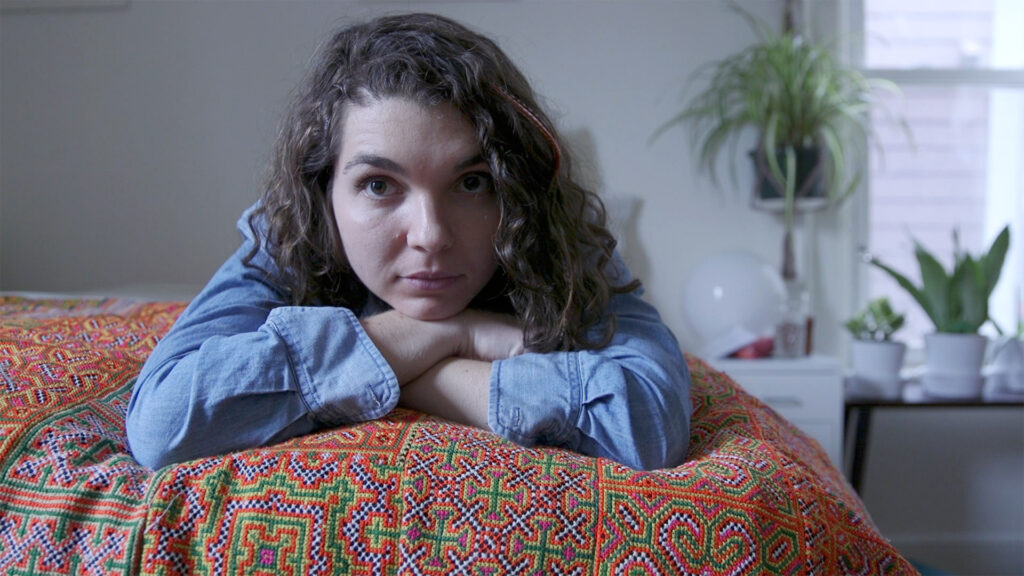
So I brought that footage back and it turned the whole pitch into a story where we could start in this vulnerable place being like “I don’t want to talk about this thing,” and then get to the end where I’m able to stand up there and confidently say that vaginas are worth talking about, to stand in that power—because it was, and still is, a process for me.
And it turned the pitch into a story, which I think is a really valuable thing because otherwise we were kind of standing up there from the beginning being like “Vaginas are important, let me tell you this, let me tell you that,” and it came off as almost preemptively being like “You’re gonna be uncomfortable about this, let me tell you why it’s important, let me give you all the reasons why you shouldn’t be uncomfortable,” kind of caveating everything from the beginning is what our pitch was doing.
So, I think it was a really powerful move to start in that vulnerable place with the audience and be like, “We’re all a little uncomfortable here,” and go on a journey and get to a more comfortable, confident place.
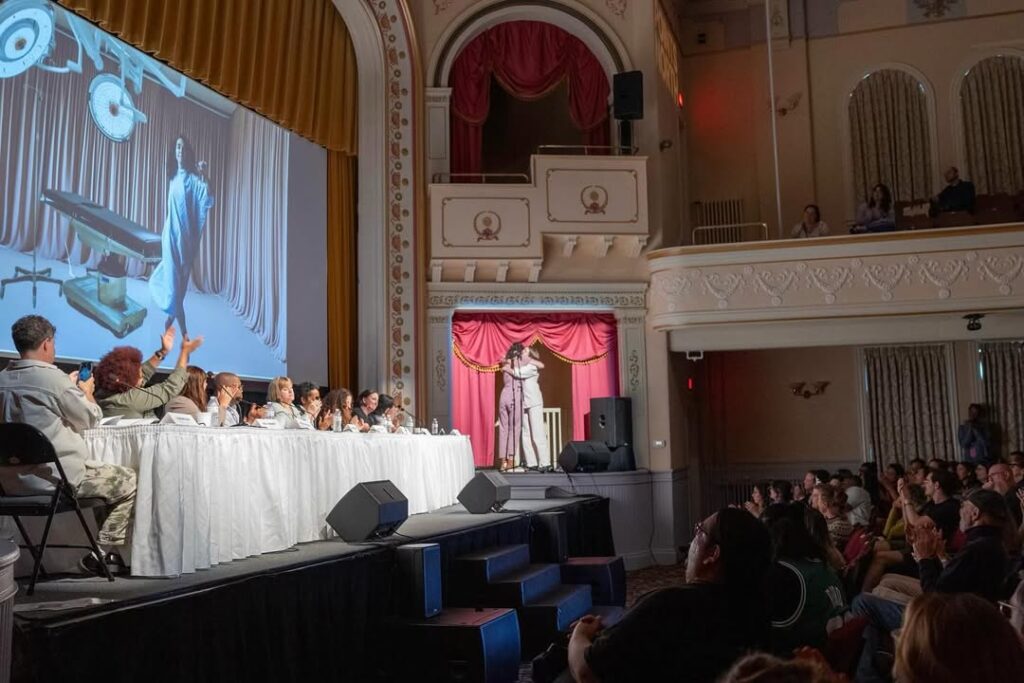
Danya: Absolutely. That was completely successful. And then you guys come out and you speak with a lot of emotion in that moment. And on the other side of that, there was you speaking with this incredible power. The pitch itself felt like a journey, it gave us a really tangible sense that watching the film would also be like that.
Riley: Yeah, I was going to say that’s exactly like the journey of the film and was the journey of that week. It’s kind of like a meta experience where everything was kind of leading towards what the film is about, which is really– I got emotional while the teaser was playing and had to go in the back by myself for a moment, and then Bryn, my producer, turned to me and she was like, “Riley, shake!”
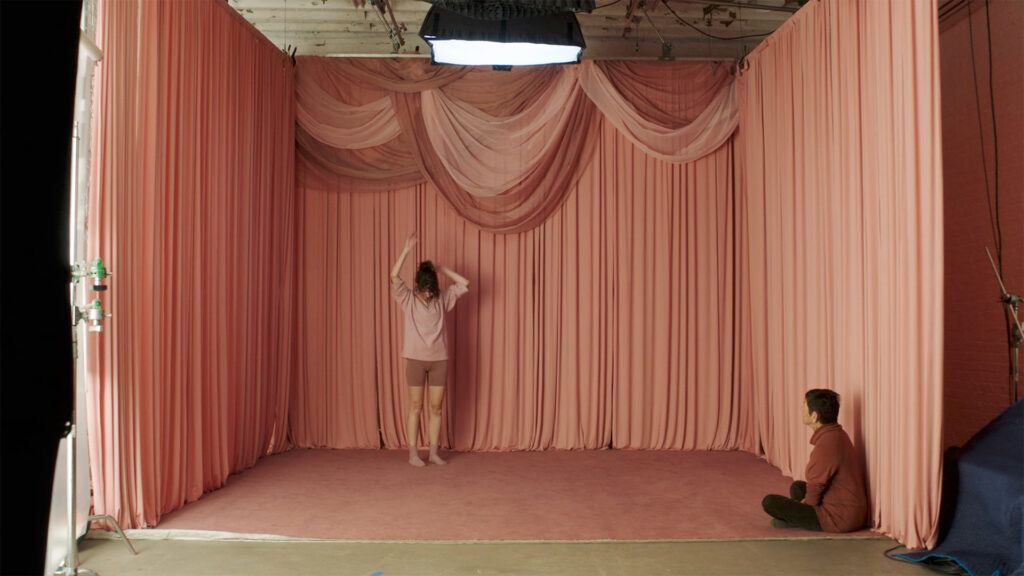
Because we had done these embodiment exercises and different things like “shaking off” on our own and with our mentors throughout the week and so she remembered and told me to do it. So, I was back there shaking, and then when I got up on the stage—did it with the audience too—and it wasn’t planned or anything but it’s what I really needed to do in that moment.
And that’s exactly what the film is about: finding these tools in your body to advocate for yourself, to find safety– so it just felt really cool, very meta, the whole week, the whole pitch, the whole film—it’s all about the same thing.
Danya: Well, to pull back a little bit, when you first applied for this pitch opportunity, where were you with the film and what were you hoping to get out of participating?
Riley: I think that this round of applying was probably my third time applying for the Points North Fellowship. Just a side note—this is something I’ve noticed with a lot of applications. When we got the Sundance Documentary Fund, that was the third or fourth time applying to that.
And it just feels like part of the process—to keep coming back, to keep showing them that you’ve made improvements. If I apply for something the first time, I don’t ever really expect to get it. I don’t even remember the first time I applied to Points North—it was many years ago. I’ve been working on this film for just about nine years. It’s very personal, so I kind of kept it to myself for a long time. It’s only more recently that I’ve been public about it and have started to receive more industry support.
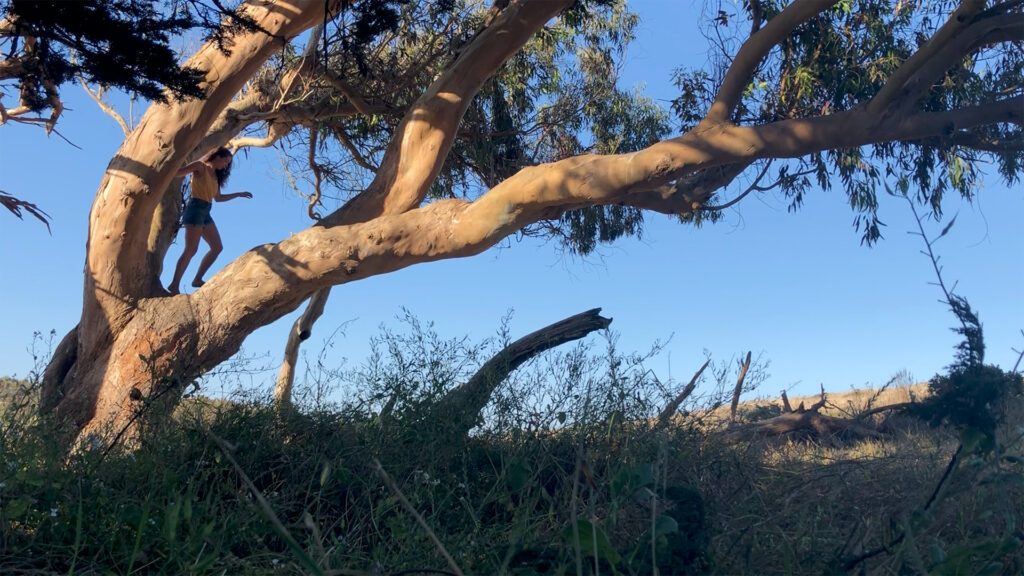
So I think, being a part of this pitch—the biggest thing is just being able to put your name and the film’s name on this slate of films. That’s what felt really amazing. Being selected for this felt like the biggest reward.
The panel is a lot of amazing industry people, so just getting the project out there in front of everyone felt important and valuable. One of our mentors said that it takes three times—or maybe more like seven times—of people hearing about your project for it to really register, for them to actually remember it.
So yeah, any kind of external validation like that is really helpful.
Danya: Yeah, absolutely. Well, it’s incredible that you were able to — and you talked about this — have this mentor who gave you a really useful note, which you worked into the trailer and the arc of the pitch itself.
You’ve heard feedback from a thousand people at this point, and you’ve learned how to listen to some of it, and the feedback you have to ignore, deliberately, to keep it true to your vision. How did you know that was a good note? How did you know to try it?
Riley: Yeah, that’s a really good thing to note. I do feel like I’m in a place now—nine years in—after having written so many drafts for grant applications, and now being at this point with the rough assembly, working with a consulting editor, and really understanding what the film is about.
Writing about it constantly, editing it, examining it—I think all of that has brought me to a place, and it took years to get here, where I really do feel confident about what the film is about and what I want to say. Now I feel like I can receive feedback and be able to tell what’s resonating with me, what feels aligned with the film I want to make, and what doesn’t.
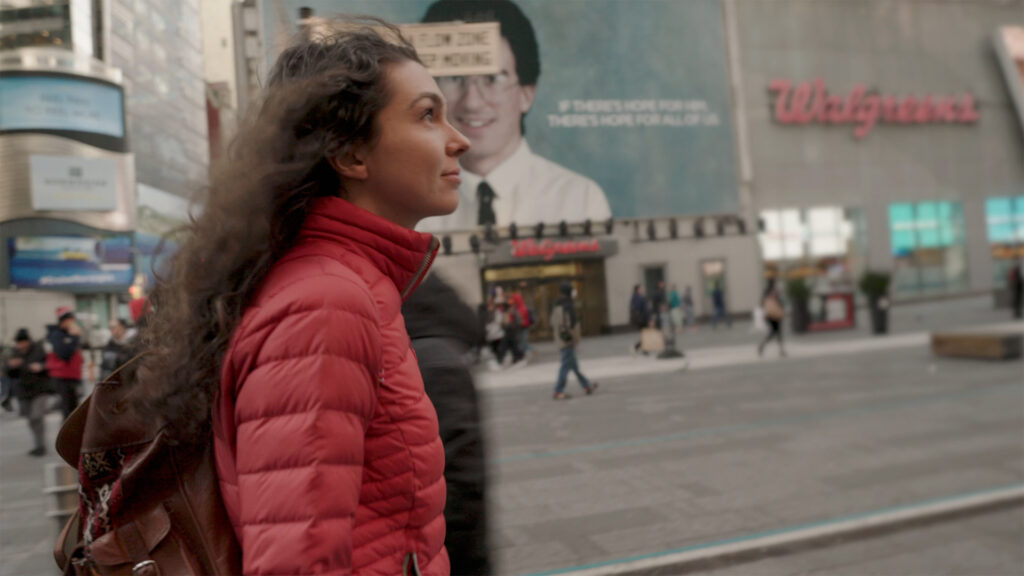
It’s been such a long process, but I’m proud that I’ve kept the film close to myself for so long and figured it out on my own—because it’s such a personal story. I was never willing to let someone else tell me what it was. I needed to figure that out for myself, and it took a really long time.
I had an experience early on where I got feedback on a very early grant proposal—like within the first year—and it was brutal. I’m glad I had that experience, because I was like, “Absolutely not. I don’t need this.” There were also times when people would say things like, “Have you thought about making it a short?”—after seeing the teaser or something like that.
And just a few times of getting feedback like that made me keep it close again too. I was like, “I need to keep this to myself and figure out what it is so I can present it.” So when I do hear things like that, I can feel more strong and confident in saying, “No, it’s not a short.”
Danya: Right. I think everybody can relate to that at some point, right? Part of the creative process is being kind of vulnerable and letting your thing hang out there.
Riley: Yeah, it was valuable. But I think it’s also a learning experience that there is a stage that’s too early to subject yourself to that kind of thing, because that could have just made me stop. And then all those people who gave that feedback then, see where the film is now… I think that that’s something that you need to find for yourself.
Nobody wants to kill someone’s creative little idea, but it can happen.
Danya: Why didn’t that stop you?
Riley: I am so committed to making this film, it’s just something that I have to finish. I mean, I sometimes lie awake at night like, “What am I doing?” Because it’s so personal, it’s so—
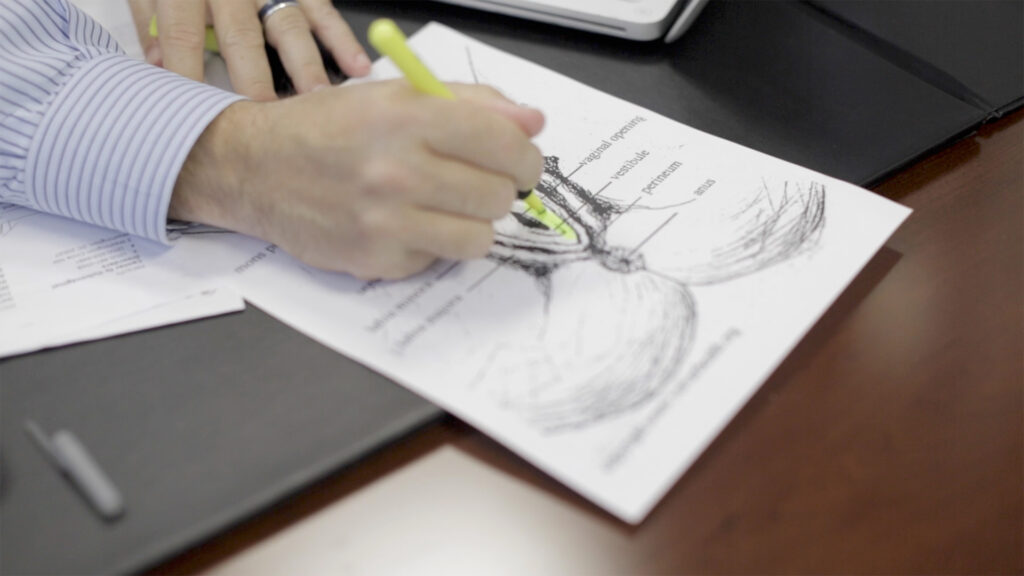
Sometimes I question if I actually want it to be out there in the world and what I’ve chosen to do, but then I just keep coming back to needing to do this.
I think once the family story started to become part of my film, it helped to bring it beyond me into themes that just feel so universal. When I have conversations with people the film resonates with—lots of people who don’t have the same condition as me—it just feels important. There will be an audience and there will be people who care.
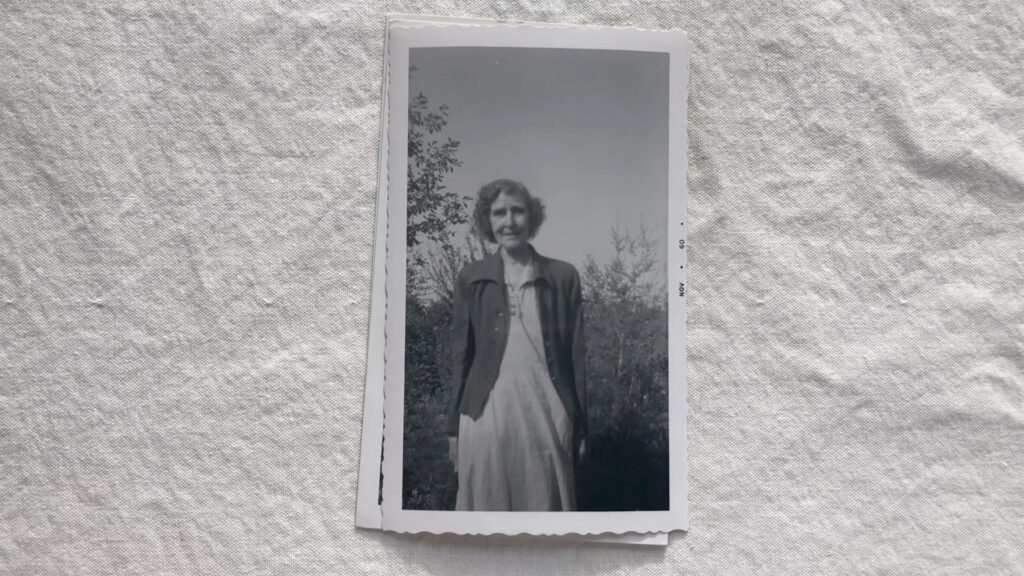
Danya: Yeah. Absolutely. I think your audience is starting to tee up. And the film is really not like any other film. I can imagine all this brutal feedback as people try to wrap their minds around the thing they haven’t seen yet. You’re creating something really new, You know, Chef’s Table about vaginas. Maybe it has some ancestors, but it doesn’t have any siblings.
Riley: No, that’s true. Someone said that on the panel during the pitch. “I’ve read this application before, it had a lot going on with dance, essay, and documentary,” and now she said that she got it with the pitch—for some reason, something clicked.
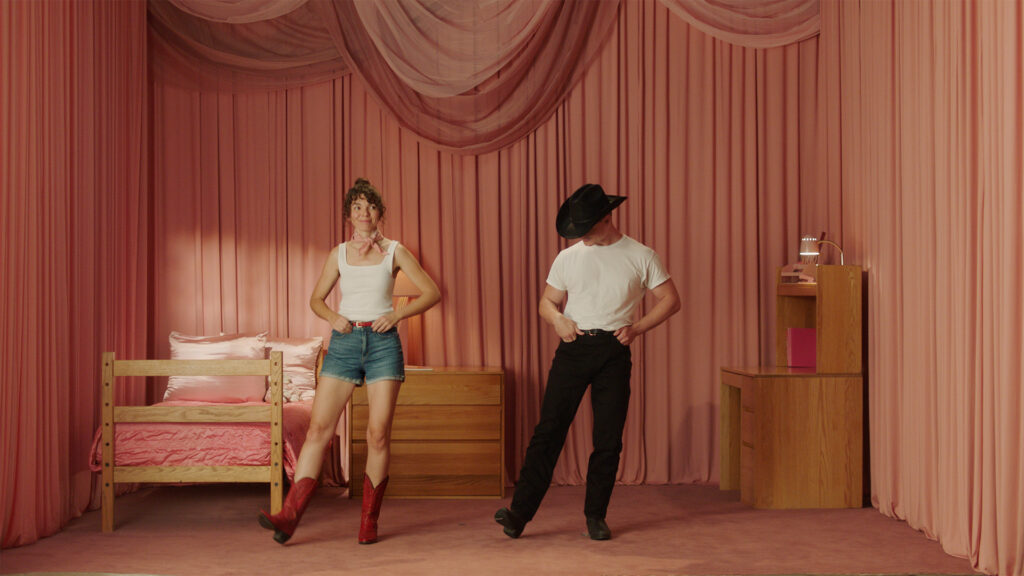
Someone else said that off the panel. I thought that was an interesting thing about pitching—that maybe being in person, that level of vulnerability that’s not written on the page, but it’s right there in front of you and authentic… that helps something to click.
Danya: So what’s been the outcome of Camden, Ji.hlava—like these pitch competitions? Is there a pot of gold at the end of the rainbow? What happens after you successfully pitch a film?
Riley: I feel like it’s still TBD. I know that it’s helping for people in the industry to know, or for the project to be valid, and out there and real, but I couldn’t tell you any specifics. It’s not like, “And then we got funded.”
We’ve had some interesting meetings and we’ll continue to see where things go. Industry stuff feels like it works on a slow timeline. Like applying for a grant and then a year later, six months, nine months later, you find out if you got it or you didn’t. I think it just works on a different timeline, so we’ll see what comes of it.
Danya: Where are you now? I saw some amazing stills from the studio shoots—the choreographed scenes that you were shooting in New York.
Riley: Yeah, we just did that first dance shoot a month ago. There’s quite a bit more to film, but it’s really amazing to have these proof-of-concept scenes that we can start to show people.
I think it has been the missing element and something that has been hard to imagine. You’ve seen in rough cuts—I’ve put little iPhone footage of the choreography and then back here would be an AI rendering of the set and what I wanted it to look like.
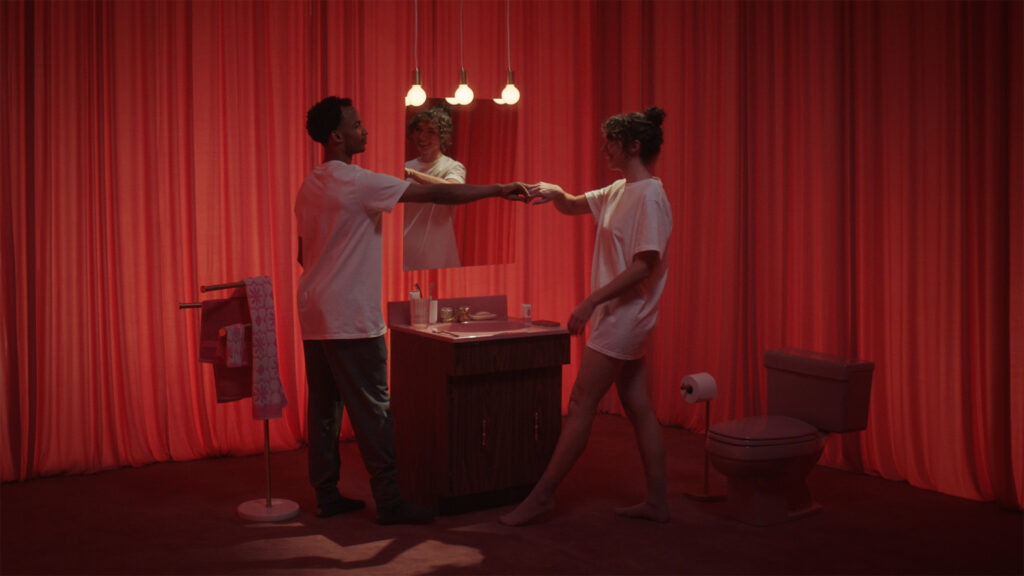
So, it was this strange little mock-up that I would do, and that stuff is still in the cut, but now it’s alongside the real stuff. So I think the ‘watching experience’ is much better. If it is still temp—you can see exactly what it is going to be. We were able to do that shoot with the grant from the Sundance Documentary Fund. It was a scary process to commit that money, but hopefully it will help us be able to fundraise more.
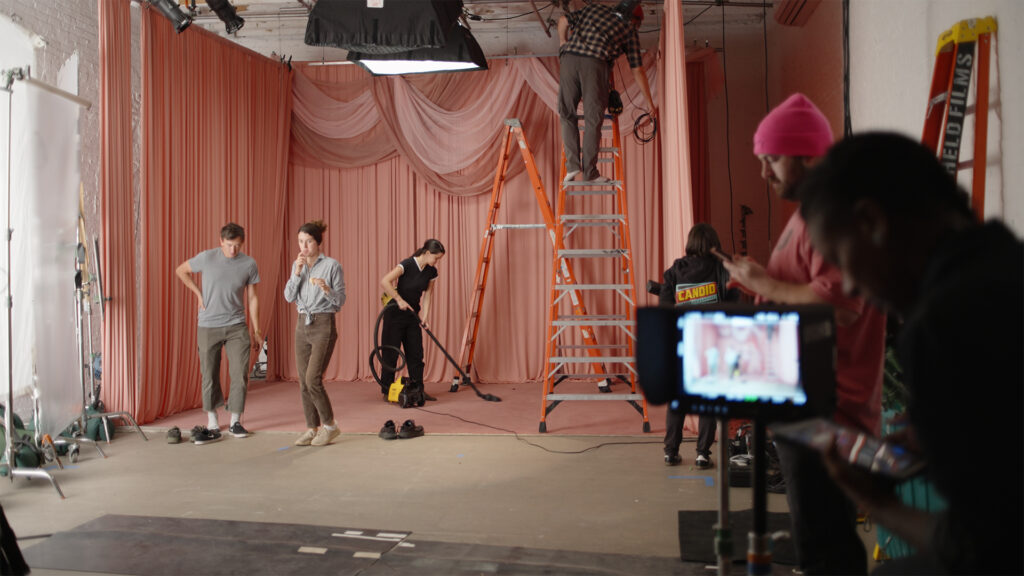
That was really scary for me because it took so long to get that grant, I took a chance believing in the vision. I tried to come up with different ways to do it for less money and I just kept coming back to “This is how I want it to look. This is what I want it to be.” So we chose to commit to that, and we chose to believe in the vision and hope that it would be possible to shoot the rest of them.
Danya: Well, they look gorgeous. I can imagine that the production and the expense around shooting stylized studio sequences with lighting, sets, and choreography—the budget is probably much higher than a typical documentary day, particularly for doing a lot of it yourself.
Riley: Totally. Up until this point I filmed most everything else by myself or had friends film doctor’s appointments. And I’ve been editing myself.
We’ve spent almost nine years, and spent almost no money. And then all of a sudden… it’s just such a contrast, you know? But definitely came very far with very little.
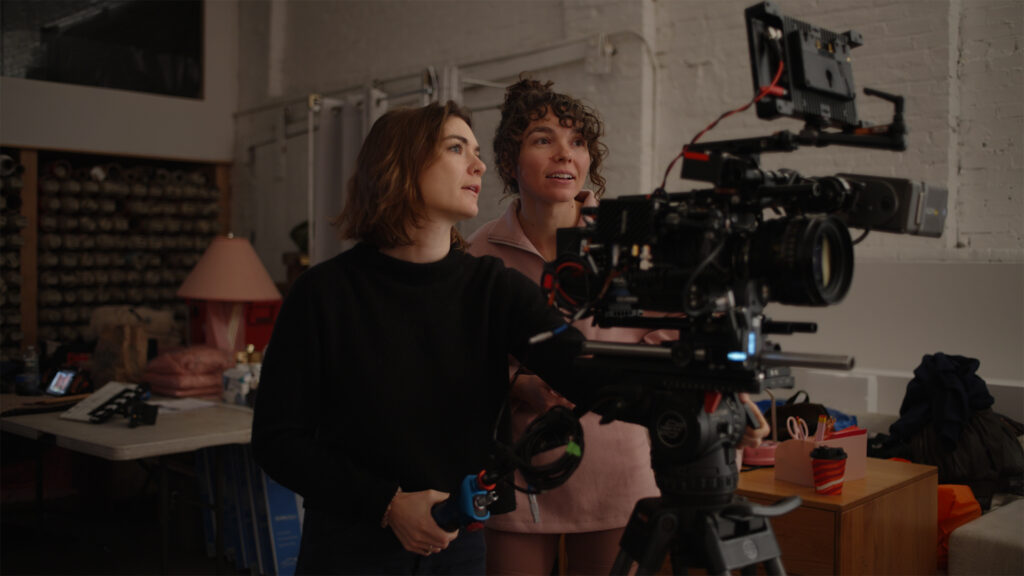
Danya: Amazing. How can people help support the project at this stage? Click and subscribe…
Riley: You can follow us @vestibulefilm on Instagram.
A really cool thing is to start to build a community around the film before it’s out. So if it resonates with you, if you know anyone who has vulvodynia, vestibulodynia, or pelvic pain—and I’m definitely wanting to build that community.
That’s the primary audience, and it definitely expands out from there to lots of different people who can resonate in lots of different ways. But we definitely want the film to serve that community.
Like I said in the pitch—up to 28% of people with vulvas experience chronic vulvovaginal pain at some point in their lifetime. That’s a huge number of people. Probably there’s someone in your life who has experienced this. So, I would love to get the conversation started in a more public way.
And if you know of any funders or rich ladies, we’ll take those too.
Danya: You’ll go to their boardroom and pitch the film for them privately.
Riley: Sure. I’d love to. We have a great pitch!
Danya: Yes, you do.
Follow Vestibule
Website: https://vestibulefilm.com/
Social Media: @vestibulefilm
Subscribe to get updates with more BFC interviews.
Copyright © 2025 Brooklyn Filmmakers Collective. All rights reserved.

